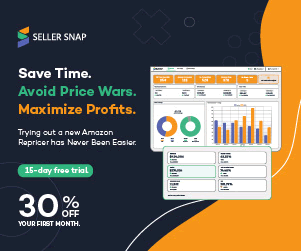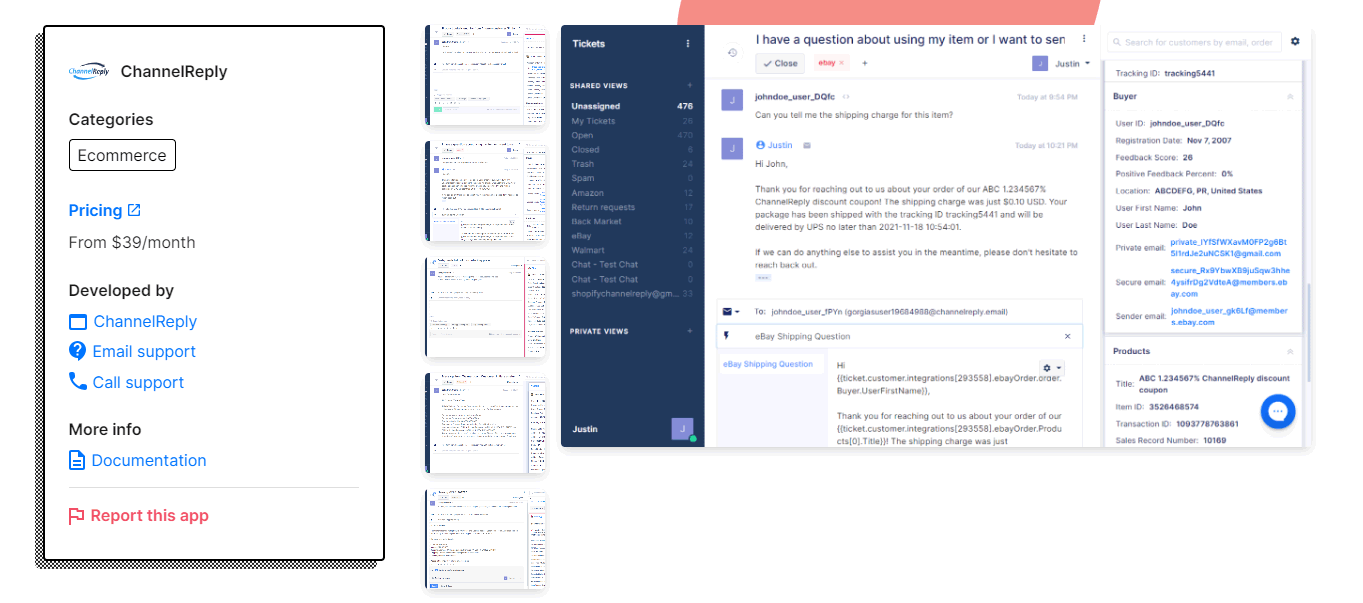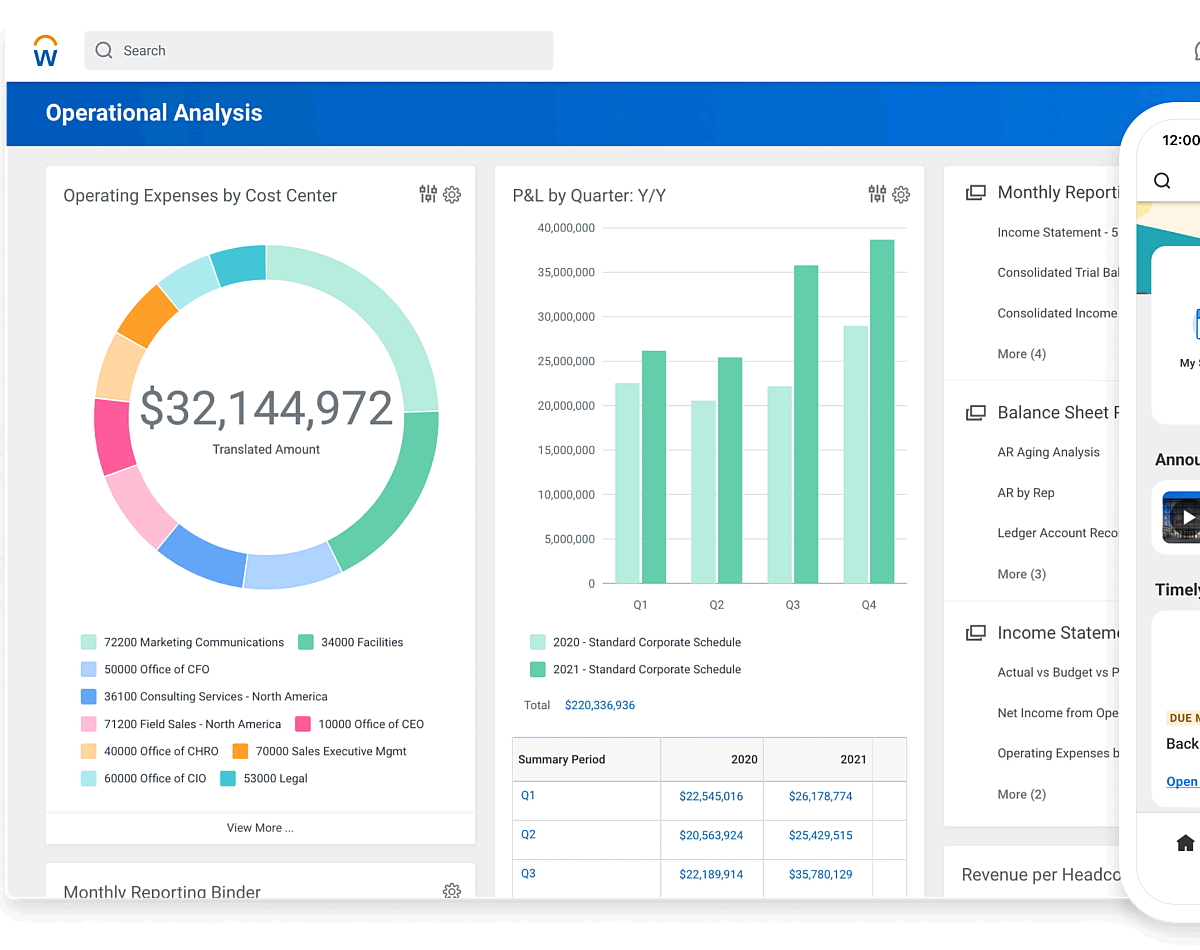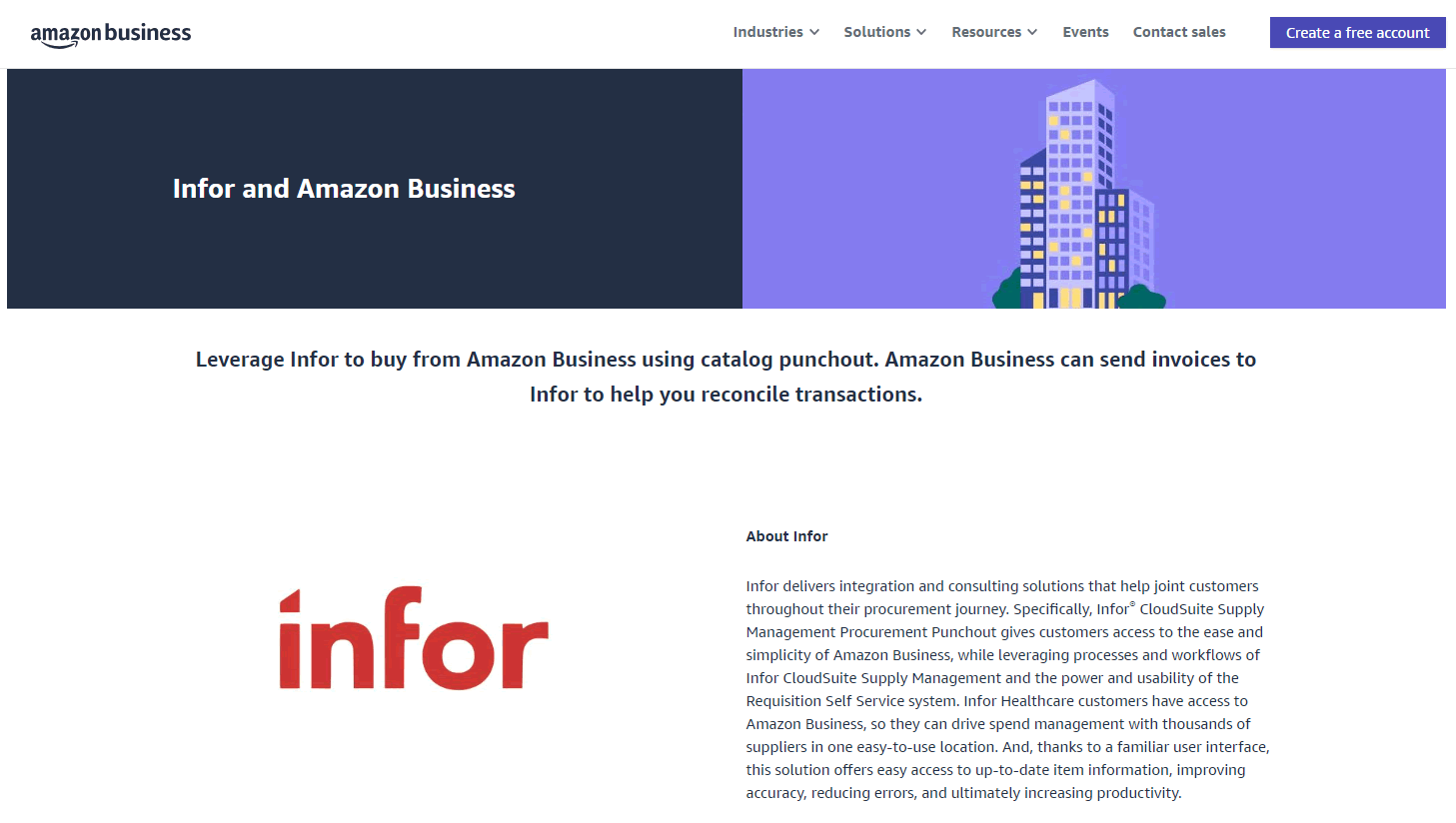An Amazon ERP software is an Enterprise Resource Planning system used by companies to manage internal operations including: billing, inventory, production, human resources and distribution. So, basically, an ERP is used to manage day-to-day activities, such as accounting, procurement, project management, and supply chain operations
Table of Contents
For Amazon sellers, ERPs are essential tools that facilitate the management of various aspects of their business operations. So, if you're selling on Amazon you'll need one of this, especially to generate clients' invoices if you're using Fulfillment By Merchant or to keep an eye on your inventory (although you can also use Amazon inventory management tools)
There are many software of this type, so it is necessary to be well informed before choosing the one you will use in your Amazon Marketplace business. In this article, we will discuss the utility of Amazon ERPs for sellers and why they are necessary for anyone selling on Amazon. And, of course, to help you, we'll show a selection of the Best Amazon ERP tools on the market (from our point of view)
What's an Amazon ERP used for?
From our point of view, there are 5 critical aspects you can use an ERP for your Amazon business
Inventory Management
Managing inventory is a crucial aspect of selling online. Amazon ERPs help sellers in keeping track of their inventory levels, which is essential to avoid stockouts or overstocking. Why? Well, besides the obvious (not selling a dollar) if you are out of stock on Amazon, A9 will, basically, wipe you out of the website's search. By integrating your Amazon Seller account with an ERP system, you can monitor your inventory levels in real-time and make informed decisions about restocking or discontinuing products
Check our reviews on Amazon inventory management tools here
Order Processing
ERPs make it easy for Amazon Sellers to process orders by automating various steps in the order fulfillment process: picking, packing and shipping. This ensures timely and accurate order fulfillment, leading to higher customer satisfaction. Of course it can also help you with order tracking. Remember, if you're using Fulfillment By Amazon, at least 95% of your orders need a tracking number (or VTR: Valid Tracking Rate), otherwise, your account performance will be affected
Accounting and Financial Management
Nowwwww we get to the numbers. ERPs provide accounting and financial management tools that help Amazon sellers in managing their finances efficiently. From tracking sales and expenses to generating financial reports: crucial for decision-making and tax compliance
Check our reviews on Amazon accounting tools here
Customer Relationship Management (CRM)
CRM features in ERPs help sellers in managing their customer relationships effectively. By centralizing customer data, ERPs enable sellers to provide personalized customer service, track customer interactions and manage customer feedback. And, most of all, at least in my experience, have eyes on repeating customers, a key metric to scale on Amazon
Multi-Channel Management
For sellers who sell on multiple platforms in addition to Amazon (third platforms or they own ecommerce), ERPs offer the advantage of managing all channels from a single interface. This helps in streamlining operations and ensures consistency in inventory levels and pricing (with the help of a repricer) across all channels
1. QuickBooks online
With QuickBooks Online (a Intuit company), you'll get a complete system for managing the accounting aspects of your company. Quickbooks is especially created to manage Amazon Sellers' capital properly and effectively to avoid wasting it on non-accounting aspects. So it's an ERP more “for the numbers” than for stocks
It is an online tool that facilitates the creation of forms, reports and inventory management. In addition, it covers the tracking of cash movements such as invoicing, sales, purchases and receipt scanning
Accessing the database hosted in the cloud is very simple, in addition to being adaptable to any type of device
It is intended for small businesses just looking to get started, in fact, when businesses are growing, the features start to fall short, so it is not recommended for businesses that handle large amounts of capital
2. Sage 200
Sage 200 could not be missing in this compilation of ERPS for Amazon. It is simply one of the leading tools in its segment
Not only does it have an impressive list of features and integrations, but it also has a modular system that is simply not easy to find in the market. We are talking about being able to choose only the modules we need to carry out our work among 8 different ones, ranging from accounting and business finance to Human Resources management or Business Intelligence,
It is undoubtedly an ally for companies of any size, in fact it allows SMEs to operate as do the largest in each market. The control is absolute and the possibilities are enormous, and the cost, in relation to everything it provides, is really competitive
3. Odoo
Odoo is a complete ERP and CRM solution that allows any business to manage its resources, ensuring that growth is not a matter of chance but rather a product of excellent management
This tool has 10,000 extensions for companies, including: invoicing, sales, hiring, expenses, CRM, accounting, projects… to name a few
It has an open source version, so that users can manage it as they wish with the most basic functions. The combination of good price and versatility is what opens up more possibilities for companies to opt for it
On the other hand, it has a paid version that increases the budget with each extension contracted. Keep in mind that the prices of these range between 4 and 8 dollars per month
This business model is ideal for small companies or those with very specific needs, since they can contract only the extensions that their budget covers and that are really necessary for their objectives
4. Holded
Holded is a business management tool hosted in the cloud specialized in the sustainable development of companies' profitability
But all this without neglecting the elementary functionalities of an ERP, such as the complete management of projects, production, distribution and even supply chain… In short, the entire workflow in any department of the company
Holded focuses on recurring billing processes so that they are automated and customer acquisition strategies are the priority. This, logically, leads to a gradual growth of the company
The truth is that it is a tool that has everything you need to be useful to any business regardless of its size or area, being its only pending task the issue of tax management to be almost perfect
Holded offers 4 service plans, one free with limited configurations, and the other 3 have more extensions as you pay more
5. Gorgias
Gorgias is a customer service and ERP software for Amazon Sellers and ecommerce manager with a set of features to streamline customer interactions and support: automatic routing of customer inquiries, real-time chats, alerts and notifications, pre-designed templates that are easy to customize, manage individual tickets and client orders, conversation history and more
Additionally, Gorgias provides multifunctional brand support, the ability to redirect resources based on data and integration with social networks like Facebook and Instagram. These features collectively make Gorgias a versatile tool that can adapt to the specific needs of each client while maintaining efficiency and responsiveness
6. Apprise
Apprise is an ERP for importing companies that require effective optimization of their supply chain, shipment of products and, at the same time, bring improvements to their production
The logistics of everything related to the company is managed with the clear objective that growth is not only reflected in accounting, but also in the internal development of each department and ensure that these generate a certain synergy to achieve overall development
As we said, Apprise specializes its system in import companies, so it is not for small companies that have not yet grown locally or nationally
This ERP automates processes so that time and resources are not wasted and corrective adjustments can be made on the fly
Apprise does not have a demo of its software, so if you want to play around with it, you'll have to check out. The cost will depend on the budget that is prepared for each client on a personalized basis
7. Workday
Workday ERP plans business resources, especially the workforce and its productivity, both for the satisfaction of workers and the company itself
With it you can manage performance, vacation management, payroll and incentive payments, promotions, departmental and general job assignments, working hours, absences and other similar aspects. All of this is handled from a platform installed in the cloud
Workday costs vary again depending on the modules contracted, but with a special feature: a 1.25% cloud hosting fee is added to the monthly payment
8. Deltek
Deltek is a very ambitious and cross-cutting ERP, enabling companies to improve modules such as sustainability, profitability, buyer management and proper ordering of products
One objective of Deltek is to make clear the weak points and the strategies that will strengthen them, giving greater stability to the structure of the company. Also, economic and human resources are protected by proactive project management that is driven from the departments
It has 5 modules, each with its own functions: Vision, Professional Services, Costpoint, Maconomy and Ajera
9. Sap Business One
Sap Business One is an enterprise resource planning or ERP very popular among small businesses that require improvements in their systems to expand their horizons and overcome competition with well thought out strategies that focus on specific weaknesses that limit growth
Among the objectives of Sap Business One is to provide the company with real performance data and statistics , accounting records, market advice and appropriate investment of capital, all from an intuitive software
The cost of this tool is adjusted to the licenses that are contracted. The most basic ones cost $1400 per year and the most advanced ones about $2700

10. Infor
Infor offers an ERP for companies that import consumable materials such as metallurgical, chemical, textile and others
Its developers understand that companies in these industries need to plan their projects, effectively manage resources, supply chain, production, order delivery, capital investment and departmental advice
Infor presents to its public 5 different alternatives: CouldSuites Financials, LN, M3, Industrial and Distribution SX.e. Each one has its own characteristics designed to cover the needs of certain specific companies
Infor's idea is for companies to achieve their objectives by enhancing their internal growth and strengthening their business relationships
prices are not established and are not public on the web. This is because they are adjusted to the needs that each client requires in a personalized way
Review
- Number of features (5)
- Pricing (3)
- Learning curve (4)
- User friendly (3)
PROS
- Multilingual software options
- Accessible on computers and mobile
- Cloud-based deployment
- Tailored for specific industries
CONS
- No free plan available
- Limited customization options
- Limited language support
- Not suitable for all sectors
- Slow processing times
Conclusions & comparison
The growing popularity of Amazon Marketplace has made it essential for sellers to effectively manage their internal operations including billing, inventory, production, human resources, and distribution. Enterprise Resource Planning (ERP) software has become a crucial tool for Amazon sellers in managing these aspects of their business operations
In this article, we have discussed several ERP tools available for Amazon sellers, each with its own strengths and weaknesses but remember the following
Each of the ERP systems mentioned above has its own set of features, strengths and weaknesses, so it is important to consider that you need first to check what are your goals, your previous system (with it's tweaks and improvements), your orders volume, your budget… it's not an easy task as there are many variables on the table
Additionally, it may be helpful to consult with a professional or request a demo to better understand the functionalities and capabilities of each system
Finally, let's check the pros and cons we just analysed
QuickBooks Online
Pros
- Easy accounting system
- Easy creation of forms, reports, and inventory management
- Adaptable to any type of device
- For every budget (from startups to SME)
Cons
- More focused on accounting than stock management
- Not recommended for businesses handling large amounts of capital as features may fall short
Sage 200
Pros
- Modular system, allows customization based on needs
- From accounting to Human Resources management
- Suitable for companies of any size
Cons
- Couldn't find any, to be honest
Odoo
Pros
- Complete ERP and CRM solution with 10,000 extensions
- Open source version available for customization
- Ideal for small companies or those with specific needs
Cons
- Costs increase with each extension contracted
Holded
Pros
- Lots of functionalities including project, production, distribution and supply chain management
- Automated recurring billing processes, ideal for membership sites
Cons
- Incomplete tax management functionalities
Gorgias
Pros
- Customer service and ERP software with features to improve customer interactions and support
- Multifunctional brand support and integration with social networks
Cons
- Requires “bridge apps” like Channel Reply for integration with Amazon Seller account.
Apprise
Pros
- Specialized ERP for import companies
- Effective optimization of supply chain, product shipment & production
- Automates processes for efficiency and corrective adjustments
Cons
- No demo available
- Not for small companies that have not yet grown locally or nationally
Workday
Pros
- Comprehensive workforce and productivity management
- Cloud-based platform
Cons
- Additional cloud hosting fee
- Expensive tier plans
Deltek
Pros
- Complete and cross-cutting ERP
- Proactive project management and identification of weak points.
Cons
-
- Could find any
Sap Business One
Pros
- Popular among small businesses
- Provides real performance data, accounting records & market advice
- Intuitive software
Cons
- Cost depends on the licenses contracted
Infor
Pros
- Specialized ERP for companies importing consumable materials
- Comprehensive functionalities including project planning, resource management & supply chain management
Cons
- Prices are not established publicly and are personalized













